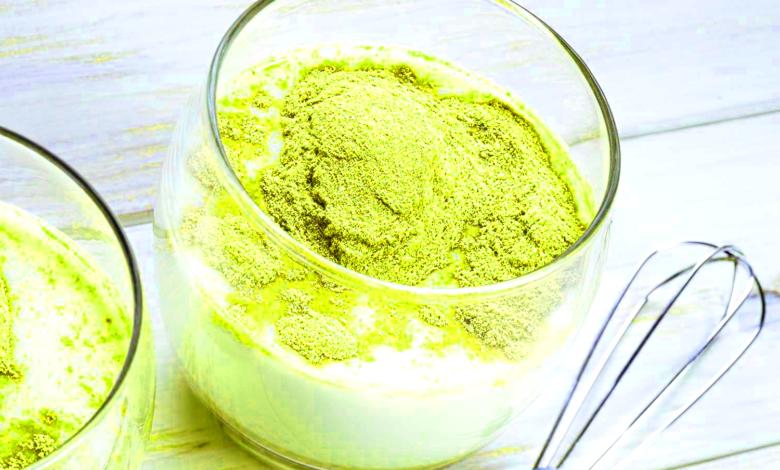Health Benefits of Nutritional Yeast

Nutritional yeast is a flake or powder generated from yeast cultured with sugar that may be used in plant-based diets or cooking.
As the name implies, nutritional yeast contains a variety of nutrients, including B vitamins and protein. This healthful, vegan, and gluten-free product imparts flavour, colour, and “cheesiness” to a variety of recipes without the use of dairy.
You’ve also certainly seen a number of recipes that call for benefits of nutritional yeast, such as cashew cheese, cauliflower mash, kale chips, and vegan pesto. If you’re not acquainted with nutritional yeast, learn about its benefits and how to utilize it.
Benefits of Nutritional Yeast
Nutritional yeast offers several possible health advantages.
Helps Contribute to B Vitamin Intake
While non-fortified nutritional yeast exists, fortified nutritional yeast is the most often utilized and provides additional nutrients. According to one research, nutritional yeast provides a complete protein and an excellent source of B vitamins, including B12.
Vegans avoid eating animal products, which are high in protein and B vitamins, particularly B12. Vegans may benefit from nutritional yeast, which increases their daily protein and vitamin B12 levels.
Read More : 11 Health Benefits of Grapefruit
Promotes Gut Health
In addition to high-quality protein and B vitamins, nutritional yeast contains fibre, which benefits digestive health. Eating adequate fiber 21 to 38 grams for adults aids digestion and minimizes constipation.
Contains Beta-Glucan
The seasoning includes beta-glucan, a kind of fibre that promotes immunity and bone density decreases cholesterol and blood pressure, and may reduce cancer risk.
Beta-glucan may particularly promote immunity via two methods. The first method enhances immunological responses, while the second reduces inflammation.
Nutrition of Nutritional Yeast
Exact nutrient contents vary by brand, however a two-tablespoon portion of the popular Bragg nutritional yeast provides:
- Calories: 40 calories
- Fat: 0 grams
- Sodium: 20 milligrams
- Carbohydrates: 3 grams
- Fiber: 2 grams
- Protein: 5 grams
Nutritional yeast also contains antioxidants and trace levels of critical minerals essential for general health. For example, it has high levels of energy-boosting B vitamins. These amounts are:
- Over 90% of the daily target for folate
- Over 200% for niacin
- More than 400% for both vitamin B6 and riboflavin
- Over 500% for thiamin
- More than 600% for vitamin B12
Since vitamin B12 is not present in entire, unprocessed plant foods, nutritional yeast is a crucial source of this mineral for those who eat only plant-based diets.
A number of trace elements, including as calcium, copper, iron, phosphorus, potassium, magnesium, manganese, selenium, sodium, and zinc, are also present in nutritional yeast.
Additionally, a mineral called glucose tolerance factor (GTF) is included in the seasoning. Although the evidence is conflicting, GTF, a physiologically active form of selenium, may help people with diabetes regulate their blood sugar levels.
Risks of Nutritional Yeast
Given the fibre level of nutritional yeast, it would be wise to avoid adding too much seasoning at once. Overconsumption of fibre may cause upset stomach, including gas and bloating or diarrhea.
Thus, if you are consuming nutritional yeast along with other high-fiber foods, think about adding the flavour to meals gradually and monitor how much you eat.
Furthermore, not everyone is able to eat nutritional yeast. If you have any of the following, you should not consume nutritional yeast:
- Yeast allergy: Allergy responses to yeast or yeast extracts are possible, however uncommon.
- Migraines:Since yeast contains tyramine, a naturally occurring chemical component linked to migraines, it may be a migraine trigger.
- Irritable bowel syndrome (IBS) and irritable bowel disease (IBD): Yeast may exacerbate IBD and IBS symptoms.
Tips for Consuming Nutritional Yeast
Some individuals liken nutritional yeast’s umami, cheesy, and nutty flavour to that of Parmesan. You’ll be pleased to learn how adaptable this nutritious powerhouse can be if you decide to give it a try.
It may be blended into smoothies or sprinkled over popcorn, salads, baked potatoes, and cooked vegetables. It may also be used in handmade crackers, biscuits, salad dressings, sauces, soups, and desserts like vegan cheesecake.
Read More : How To Fast Healthy Gut 2024
Other possibilities include mixing it into a homemade macaroni and cheese sauce by combining it with cashews and seasonings. Another way to use it is to top a bowl of spaghetti with pesto instead of Parmesan cheese. Another use for nutritional yeast is as a savoury garnish for hot butternut squash soup.
Conclusion
Nutritious yeast, a kind of spice, is a source of fibre, folate, and vitamin B12. It may help the immune system and the digestive system, among other things. Given the fibre content of nutritional yeast, it’s best to avoid consuming large amounts of food quickly to prevent digestive problems like bloating. Additionally, the product is adaptable and may be added to dishes like salad dressings, soups, and desserts as an ingredient or as a spice.







